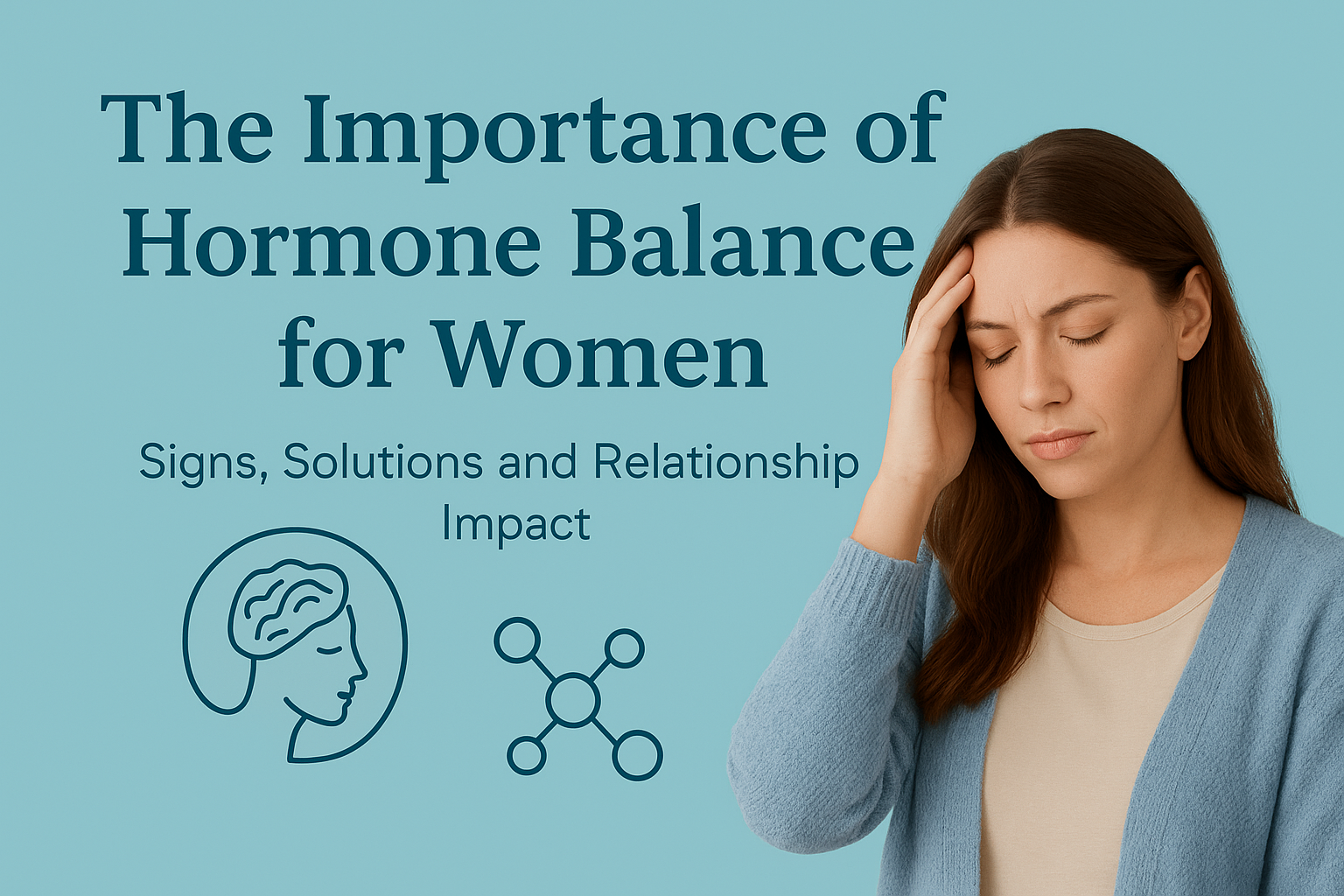Hormones influence almost every aspect of a woman’s well-being—energy, mood, fertility, skin, weight, and even the quality of relationships. Yet many women don’t realize they’re out of balance until symptoms become overwhelming.
In this article, we’ll explore why hormone balance matters, how to identify possible issues, and actionable ways to support healthy hormones naturally.
Why Hormone Balance Matters
Hormones act as chemical messengers that regulate key body systems. When levels are optimal, you feel energetic, emotionally steady, and resilient. When they’re off, you may experience:
-
Fatigue
-
Mood swings or irritability
-
Irregular cycles or PMS
-
Sleep disturbances
-
Unexplained weight changes
A healthy hormonal system is not only essential for your body but also for your mental health, self-confidence, and intimacy with your partner.
Tip: Read our What is Inositol and How It Helps with PCOS article to see how one simple nutrient may support hormonal health naturally.
How to Recognize a Hormonal Imbalance
Many women chalk up their symptoms to stress or aging, but persistent issues may signal imbalance. Common indicators include:
Physical Signs
-
Persistent fatigue even after rest
-
Hair thinning or breakouts
-
Irregular or painful periods
Emotional Signs
-
Anxiety, low mood or “brain fog”
-
Sudden mood swings or irritability
Relationship Impact
Hormonal fluctuations can affect libido, patience, and emotional availability—sometimes creating tension with partners. Recognizing the root cause can help couples address challenges together rather than feeling frustrated.
Practical Ways to Support Hormonal Balance
Nutrition & Lifestyle
-
Balanced nutrition: Include protein, healthy fats, and micronutrients like magnesium and B-vitamins.
-
Stress management: Yoga, meditation, and proper sleep reduce cortisol spikes that disrupt other hormones.
-
Regular movement: Strength training and gentle cardio improve insulin sensitivity and mood.
Smart Supplementation
Certain supplements can be helpful when combined with healthy habits. Check out our The Myths About Balanced Hormones: What Actually Works for Women to learn which options are truly evidence-based.
Professional Testing
If you suspect an imbalance, ask your healthcare provider about blood or saliva tests for thyroid, estrogen, progesterone, and cortisol levels.
Relationships & Hormonal Health: Saving the Connection
Open communication about hormonal changes with your partner can prevent misunderstandings. Encourage them to learn alongside you so you both feel supported. Couples who approach hormone-related challenges as a team often report stronger intimacy and improved emotional closeness.
Key Takeaways
-
Hormone balance is essential for physical, emotional, and relational well-being.
-
Symptoms like fatigue, irregular cycles, and mood swings can be early warning signs.
- Lifestyle changes, targeted supplements, and professional testing form a strong foundation for balance.


0 comments